Crikey O’Riley Restless Ones,
I’m going on a journey. And this is one I don’t need to get on a plane for.
I wasn’t sure if I should share it while I’m in the thick of it, or wait until it’s all finished, so I can tie a little bow around it and present it to you, neatly.
But then I reminded myself that this is, largely, what this newsletter is for — to share the messiness of life as it happens, through a time when I have lots of questions and far less answers.
Just over a year ago, I gave birth to twins. Two beautiful little lives which I grew inside me for 37 weeks. Bringing them into the world didn’t all go to plan and Jupiter ended up in intensive care.
There are some hangovers from what happened that day which creep, unexpectedly, into everyday life. And I know that there are thoughts and feelings which I’ve squashed down into my (muddy) boots, in an effort to just crack on. But I’m eager to see if I can bring them to the surface.
This post might be sensitive for anyone who’s experienced loss or trauma around birth. But I also know that there are so many people who have been through some kind of trauma in the past (birth related or otherwise) — who carry it around with them for years, a lifetime even.
This has felt heavy enough to carry for a year, so maybe in sharing the journey, it can lighten the load for someone else too.
And as a side note… the human mind is freakin’ FASCINATING. As is this EMDR therapy stuff. I’m down for the ride.
Thanks for being here in this little corner of the internet with me. You are the jam to my sponge roll.
Big love,
Anna xx
It’s early on a Wednesday morning and I’ve driven 45 minutes from home to a place nestled in the green folds of the Cotswolds. My therapist, Joyce, has sent directions to her studio and, as I take a few steps towards it, I can see that the door is already ajar.
‘Hellooo?’ I call.
‘Hello Anna. Come in.’ A soft voice floats from the other side of the door.
Joyce’s studio is warm and cosy. She’s sitting in a leather office chair opposite the door. In her late fifties, she’s got shoulder length white hair and is wearing a navy jumper with a red beaded necklace over the top. To my right is a small green sofa with two large, square brown cushions on it. There’s some kind of infuser going and the place smells of coconut and vanilla.
‘Hello Anna. How are you?’ Joyce asks.
‘Good, good. Thank you.’ I reply, shifting in my seat. ‘Well, actually, I’m a bit nervous.’
‘Really?’
‘Yes, but that’s good. It’s good nerves, you know?’ I add quickly, as if I’m trying to reassure her that I’m not going to make a bolt for the door.
Joyce nods. I take off my shoes and move position again so that I’m sitting cross-legged on the sofa.
‘Are you comfortable?’ Joyce smiles.
‘Yes, thank you.’
‘So, Anna. What we’re trying to do today is to check that I’m able to help you, that we get along, but also that the EMDR therapy is going to work for you. Does that sound okay?’
‘Yep, sounds great.’
‘So I will tell you about how the therapy works, but first — and I know you’ve already shared some of it with me on email but — could you go ahead and tell me why you’re here?’
I take a deep breath.
I want to talk about it. I’m ready to talk about it. But it doesn’t change the fact that it’s difficult to talk about it.
It’s also mad that I don’t know this woman at all, and yet I’m about to share my deepest and darkest thoughts with her. But that makes it easier, I think. Because — she’s not a friend, or family member, or even a colleague. I’m not, for once, concerned with her wellbeing over my own. I am here to put myself first. To take what I need.
So I override my inner mental commentary, which constantly wants to present things in a positive light. I take another deep breath and explain what happened.
‘Okay, so, just over a year ago, I had twins. It was a great birth. I mean, in so many ways, it was the best birth I could have asked for. I wanted a physiological birth — no drugs and everything. And I got that. I had them in a birth pool at the hospital, which is unusual for twins…’
‘Is it?’ Joyce says.
‘Yes. Mostly they want to put you in a room with bright lights and a bed and all that. But I had my first baby — she’s called Storm — I had her at home in the living room, so I thought I’d be more comfortable in a quiet, dark place… So, anyway, that bit of the birth was amazing. And it really was amazing — it started so well. Rocky, the boy-twin, he was born first and then his sister, Jupiter. She came out second…’
‘And how far apart were they born?’ Joyce asks.
‘Sixteen minutes…’ I say, and Joyce nods for me to carry on. ‘So Rocky was fine, but Jupiter got stuck when she was part-way out. She was still in her sac… her water sac. I mean, which is usually fine — but both the placentas were attached to the side of the sack. I didn’t know it at the time, but they’d detached from the side of my womb. It’s call it a concealed abruption, I think… So Jupiter didn’t have a supply of oxygen any more.’
‘How long was she without the supply of oxygen for?’ Joyce asks.
‘We’re not sure, but the doctors think between 6 and 9 minutes. She still had some, in the placenta, and in her own blood, but that was all.’
‘OK, carry on.’ Joyce says.
‘So when I managed to get her out, and we took her out of the sac, she was white and floppy.’ I pause and sit back on the sofa, because I remember this part so vividly. It’s the image that pops into my mind the most.
‘I mean, she looked like an angel. I remember thinking that — she was just so unbelievably beautiful. But as I was holding her up in my arms, I was rubbing her back and calling her name, but her limbs were hanging and she was completely still. And I remember thinking: She’s dead. It’s happened to me. I’ve lost a twin.’
‘That must have been terrifying,’ Joyce says.
‘It was. The midwives hit the emergency button and whisked her away. And then I know, after that, I just completely detached. I didn’t process what was happening. It was crazy — I was just sat having a cup of tea and a biscuit with Rocky in my arms, chatting to my Doula, acting like everything was fine. But I didn’t know if my daughter was alive or not, you know?’
Joyce nods and I continue.
‘Jamie went off with her and I got to see her after an hour. The doctors said she made a fast recovery in that time. She was breathing for herself after a while, and we spent a week in intensive care with her. But in the end she was OK.’
‘And how is Jupiter now?’ Joyce asks.
‘Oh, she’s fine. She’s fierce! I mean, so far we can’t see any developmental delays or anything. She has check ups… so we think she’s OK. But that’s what’s such a head screw. Because in one sense, everything worked out fine, and it was the day I met my twins. But it was also the scariest day of my life. So those things just don’t seem to want to sit side by side. That’s what I struggle with.’
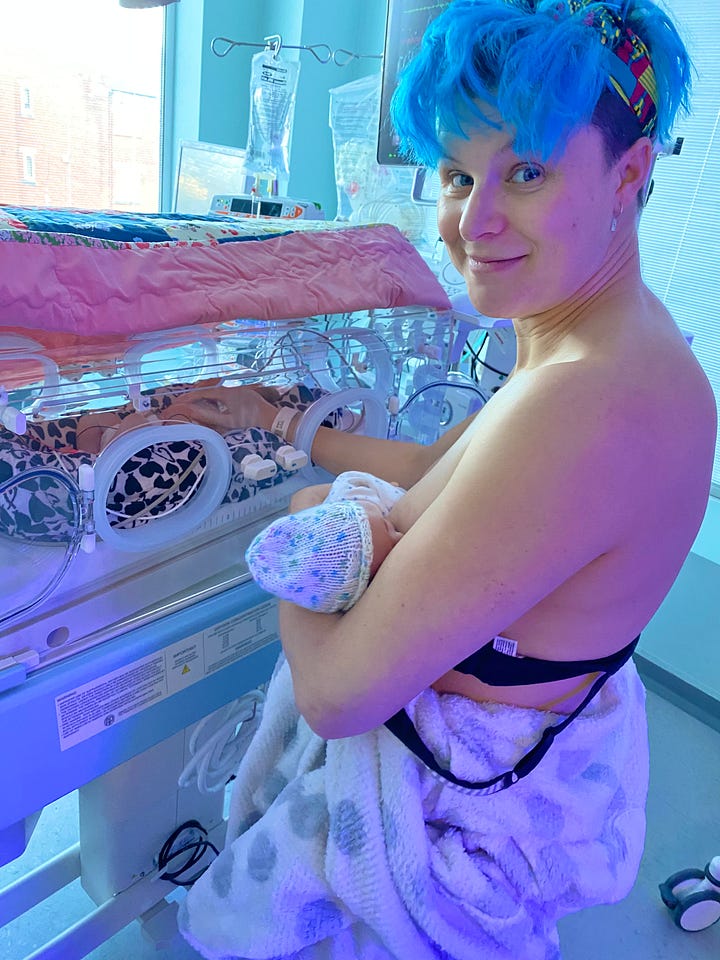
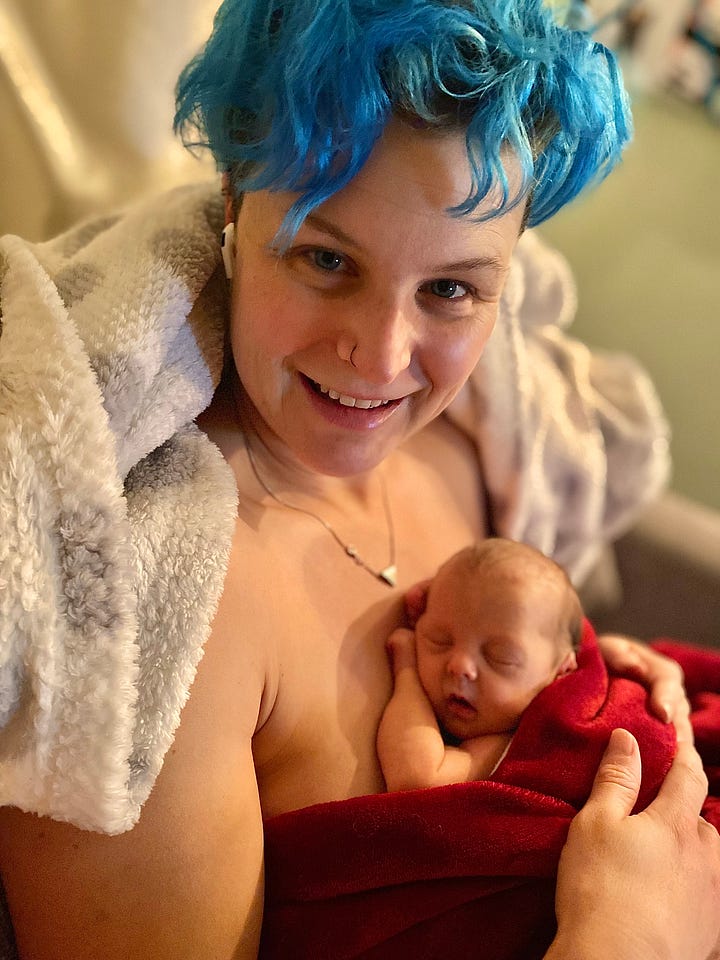
Joyce asks me how the memories of the day affect me in daily life and I tell her that often, when Jupiter is upset and cries — usually when she hurts herself, I have a sinister voice that pops into my head that whispers ‘she knows.’
And what that voice means is: she knows she started her life in pain and suffering. She knows you couldn’t protect her from that. And I can feel her looking at me, saying with her eyes: ‘You weren’t there for me, Mum. When I needed you, you weren’t there.’
I explain all of this to Joyce, and say that with those thoughts comes a wave of guilt and shame. I know that if I don’t address those thoughts now, it could affect my relationship with Jupiter as she grows up. I’m concerned that she’ll feel the confusion I’m trying to hide, somehow. And I don’t want that.
Joyce takes a moment and sits back in her chair.
‘Well, the first thing I want to say, Anna, is that you have experienced a severely traumatic event.’ She looks directly at me and I feel a lump rise in my throat. ‘I can see that makes you emotional, but I want to let you know that.’ She continues.
‘Thank you.’ I say and I let out a breath.
What Joyce has said brings a rush of relief. Because I was worried I was going to come to here today and she would question why I was here.
I was concerned she would say: ‘Your daughter’s fit and healthy. No one died. In fact, you have three beautiful, healthy children. What have you got to be troubled by? So, hearing Joyce say that the event is traumatic, it feels like a weight has lifted. Or at least that she can carry the weight of it with me.
I share some of these thoughts with Joyce and she continues to look at me, her gaze unwavering. ‘Absolutely not Anna. You thought your daughter was dead. That is a severe trauma.’
I nod.
‘And the second thing I want you to know is the fact that you detached when it happened is also completely normal.’
‘Really?’
‘Yes. Your body and mind couldn’t cope. And our bodies and minds will always do what they need to do to protect us. So yours shut down.’
And I know that what’s she’s saying is true. Now that we’ve got the toughest part out of the way, I feel more comfortable — there’s nothing that kicks a relationship off between two strangers like sharing all of your innermost demons.

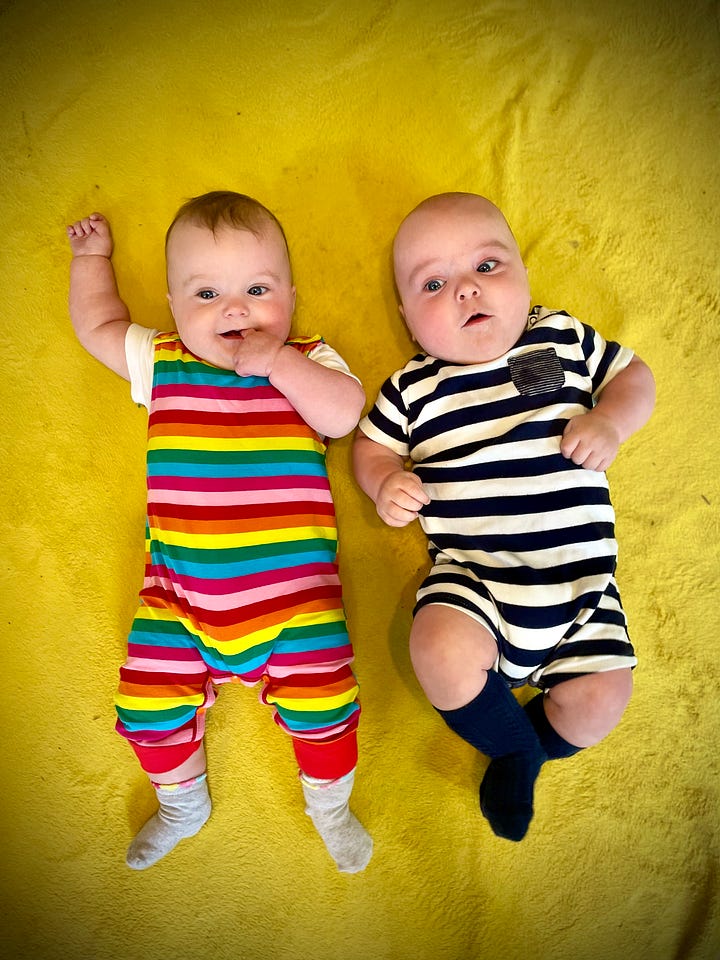
So Joyce moves on to explaining how EMDR works and, as someone who once studied psychology and who has a love of how our brains work in general, I’m all ears.
The general gist is that when a non traumatic event happens in our lives, we have no trouble telling that story to our friends.
‘There’s a narrative attached to that event and it gets stored as a complete little node in our brain’ Joyce explains. ‘But when we experience a traumatic event, the memory of it fractures. Those memories get broken up and scattered across the brain, so there is no complete narrative to join them together’
And now I imagine a shattered mirror, the shards suspended in outer space. Sharp edges and jagged parts surrounded by stars and endless black — these are my memories.
Joyce explains that the broken parts of the memory are often stored as a single sense… a sight, a sound, a smell — so when we encounter something in everyday life that reminds us of that part of the event, it touches one of the jagged edges of that memory and we’re triggered.
What Joyce is saying really resonates with me. I tell her that sometimes the fragmented memories of that day come into my head in the moments before I drift off to sleep at night. Or if I wake during the night. But that they also pop into my head at the most random times.
‘What do you mean?’ She asks
‘Well, I was watching a survival documentary the other day, and the people were trying to survive for as long as they could in Labrador — up in the north of Canada. And someone had just found a white hare. It was dead and floppy and I remember thinking it looked so beautiful, even though it was dead, and I immediately thought of Jupiter.’
Joyce tells me that makes sense, I’m having flashbacks because I don’t have a full narrative of what happened. I don’t have a complete story to tell myself.
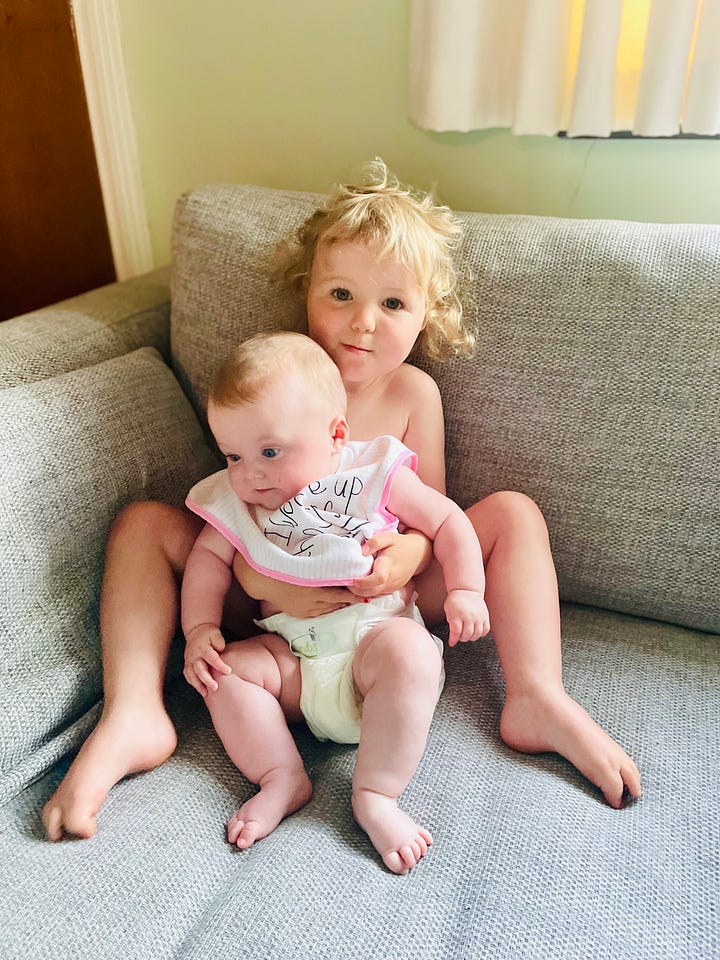

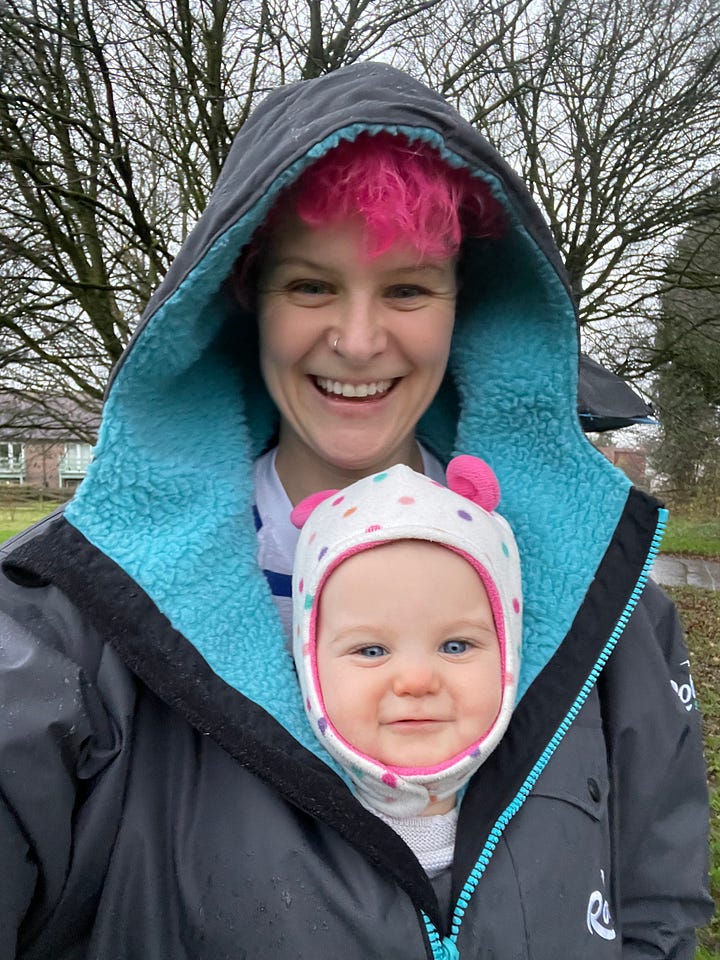
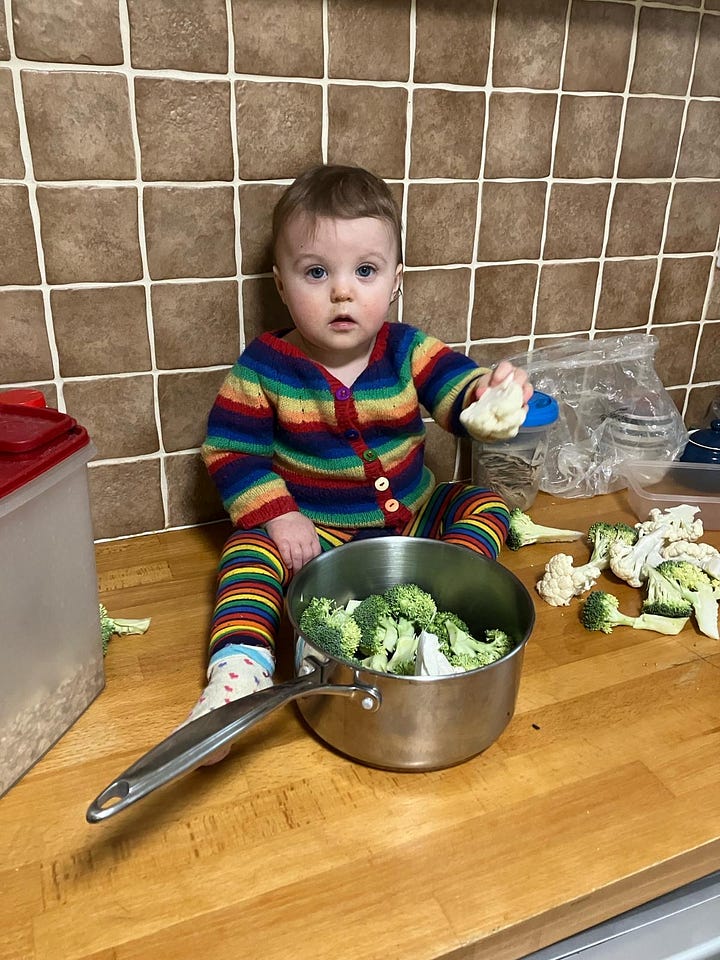
She says that the goal of the EMDR is to get your brain and your body talking again. To get the ‘thinky’ part of our mind to quieten down, so that it doesn’t override what our body (and the more feeling centred, primal part of our brain) remembers.
She explains that this is done by stimulating the left and right brain, alternately. Often this is done by getting a person to look from left to right, but she prefers to use a set of hand held buzzers instead. I’ll hold one in each hand and they will buzz alternately.
‘So my job is to get to know you as best I can, then guide you as we use the process to go back through your memory of what happened that day. And the key is that we are trying to allow your body to lead the way and to remember what happened as you truly experienced it. Because that is the truth — however you experienced it — that is what happened.’ She says.
And now I imagine that Joyce and I are going into a deep, dark maze together. Like the Goblet of Fire maze in Harry Potter. A maze which I must follow on its many twist and turns.
And Joyce is going to be there, up above me looking down on the whole thing, watching what’s going on, keeping me safe, guiding me, but ultimately letting me take the path I need to take to heal.
We come to the end of the consultation session and Joyce says that she feels like EMDR could help me, and that she’d like to go ahead if I’m willing.
I let her know that I’m up for a journey together and that I don’t need to take the time to go away and think about whether she’s the right therapist for me.
‘Joyce, I’m in.’ I say.
‘Okay then, Anna. We’ll get started next week.’





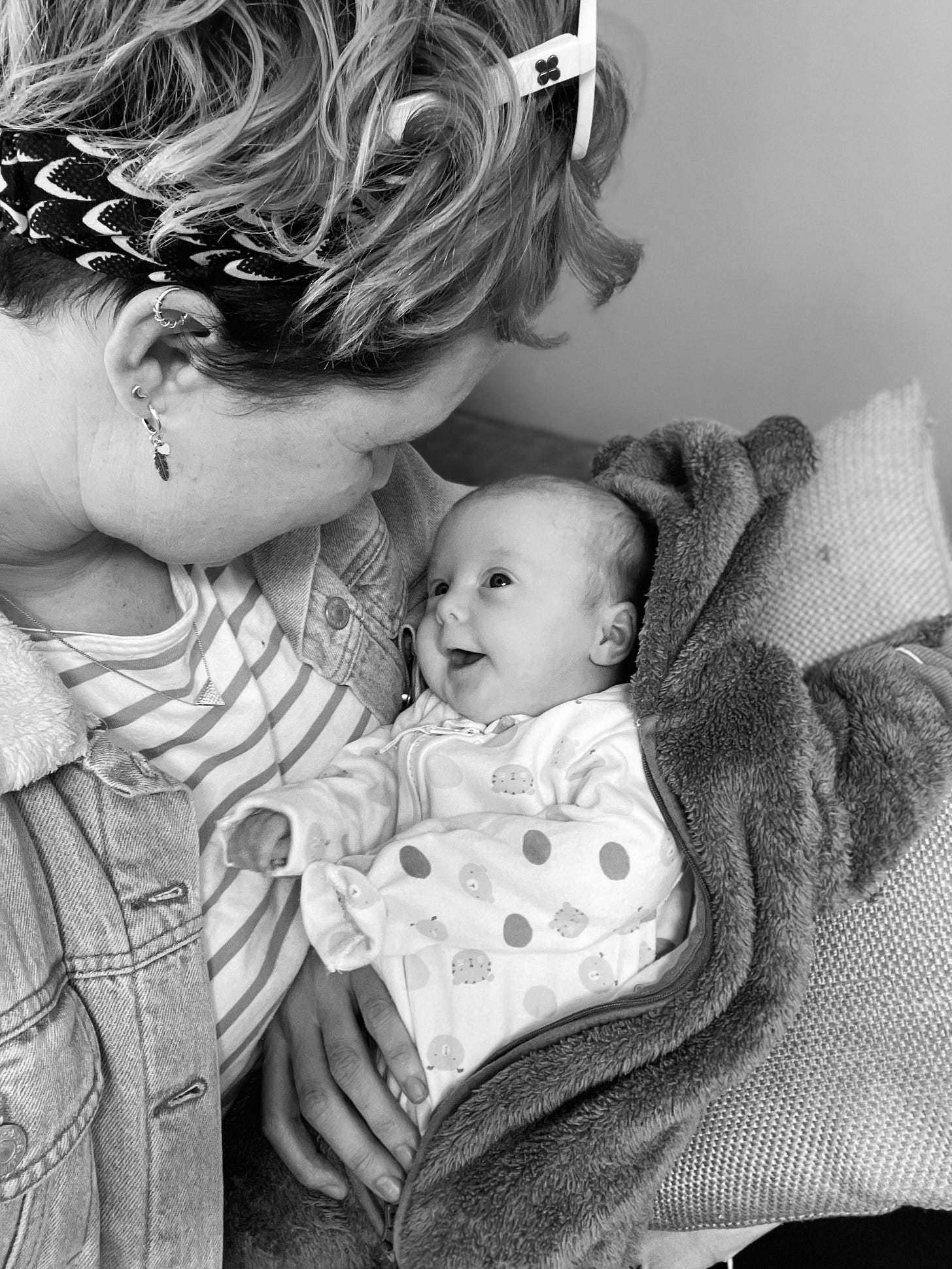
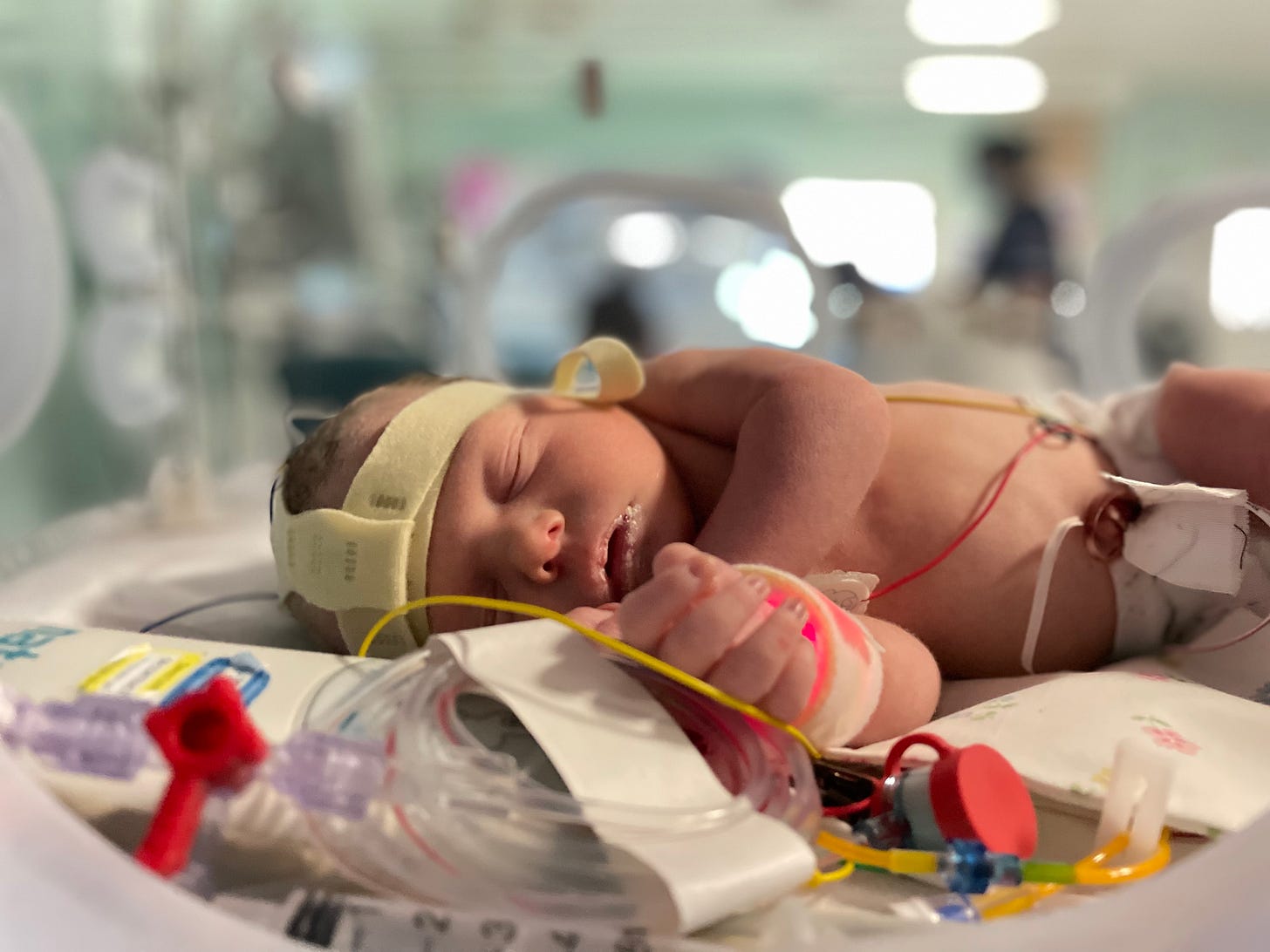

Thanks for this beautiful post Anna, I had a few (lots) of tears reading it as it touched on an experience of intense vulnerability with my infant daughter. It takes guts and heart to do the therapeutic work and even more to share. Inspiring :)
I save your writing for quiet times when i can savor your work. This week is very special. Thank you for sharing your life with us and providing others an opportunity to learn from your experiences. ❤️